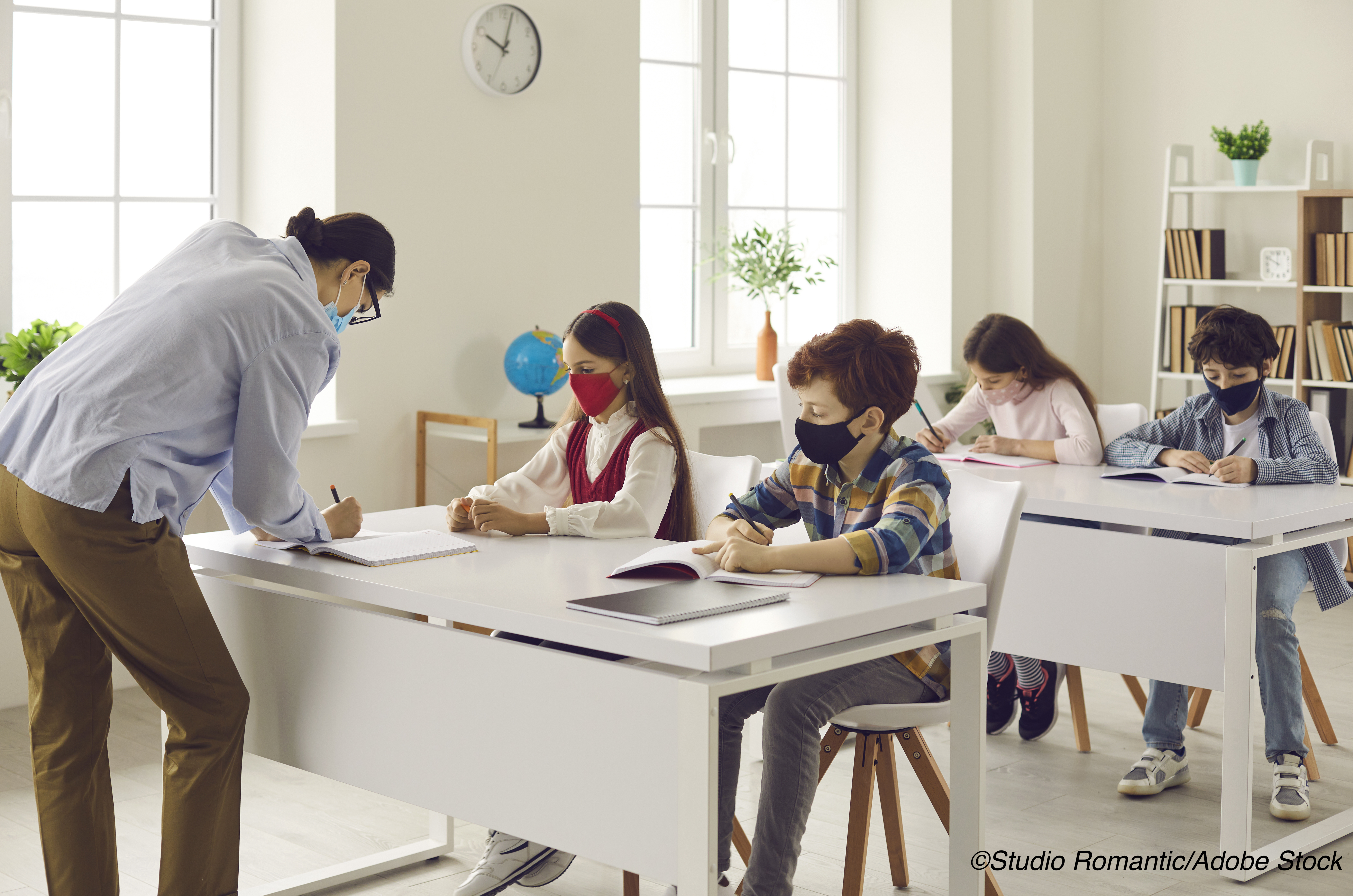
New research adds to the growing evidence linking stressors associated with Covid-19 and related school closures to increases in depression, anxiety, loneliness, and other mental health issues among school-age children.
The survey study, conducted in the early months of the pandemic, explored caregiver perceptions of the psychological well-being of more than 40,000 children attending Chicago K-12 public schools before and after the schools were closed due to Covid-19 in mid-March of 2020.
Based on responses from parents and other caregivers, the survey identified an overall six-fold increase in child agitation and anger several months after school closures, a four-fold increase in depressed or low mood, and a ten-fold increase in loneliness.
Across age groups, Covid-19 was associated with prolonged disruptions in daily routines, decreased exposure to adult and peer relationships, and reduced opportunities for academic and social development, noted researcher Tali Raviv, PhD, of the Ann and Robert Lurie Children’s Hospital of Chicago, and colleagues in JAMA Network Open.
“Compounding these issues are the economic hardship, grief and loss, and health concerns that some youths have experienced as a result of Covid-19 in our sample,” Raviv and colleagues wrote, adding that Black, Latinx, and youth living in poorer households were most likely to experience these stressors.
The survey, which was anonymous, was distributed via email from June 24 to July 15, 2020, to 350,000 families of students attending Chicago-area public schools. Data were analyzed from Sept. 10, 2020, to March 15, 2021.
Outcomes included seven mental health concerns and five positive adjustment characteristics reported by caregivers using a retrospective pre-post design. Covid-19 exposure and family stressors were also reported by caregivers.
A total of 32,217 caregivers completed the survey (39.3% White, 30.2% Latinx, 22.4% Black, 8.1% with multiple or other races/ethnicities) on behalf of 49,397 children. Child-specific outcomes were reported for 40,723 to 40,852 children depending on the specific question.
Caregivers reported that child psychological well-being measures decreased in all categories after schools closed.
Specifically:
- Reports of child agitation of anger increased for 4.2% before to 23.9% after school closure.
- Reports of child anxiety increased from 12.6% before to 23.3% after.
- Reports of child depression or loneliness increased from 3.4% before to 14% after.
- Reports of child self-harm or suicidal thoughts increased from 0.5% to 0.6%.
- Reports of child loneliness increased from 3.6% before to 31.9% after.
In commentary published with the study, Danielle Dooley, MD, of Children’s National Hospital, Washington DC, and Dimitri Christakis, MD, of the Seattle Children’s Research Institute wrote that despite the limitations of its retrospective design relying on caregiver reporting, “the study supports what has been observed in our health care centers, our emergency departments and our inpatient units: children’s mental health has been significantly affected by school closures during the Covid-19 pandemic.”
They noted that in the roughly nine months since the survey was conducted “the mental health concerns and positive adjustment characteristics identified in this study have likely worsened,” with the Covid-19-related mental health issues disproportionately affecting children living in poverty.
“One year into the pandemic, school districts continue to be mired in debate over reopening, students continue to fall further behind, and there is no clear consensus on offering summer school programs to help address the learning loss and other needs of children. The toll this will take in both the short and long term is staggering, although largely invisible at present,” they wrote. “At every stage of the evolving pandemic in most communities, school reopening has been an afterthought and not a priority. The time for debating school reopening has passed. We need to focus on school re-envisioning. The disruption in learning and the consequences for children’s health means that we cannot resume school as usual.”
Dooley and Christakis suggested multiple steps to address the mental- and physical health-related needs of children and families during and after the pandemic, including better coordination between schools and the health care community, better access to mental health services for both children and their caregivers, and prioritizing research “to refine and improve school safety and operating protocols, to expedite contact tracing and to shorten quarantine after an exposure to minimize loss of in-person learning time.”
“Every district needs a plan and commitment to reopen every school, for every child, as soon as possible. Anything less is a failing grade,” they concluded.
-
The survey of caregivers regarding the mental health of children attending Chicago public schools identified an overall six-fold increase in child agitation and anger several months after school closures, a four-fold increase in depressed or low mood, and a ten-fold increase in loneliness.
-
The survey, conducted in the early months of the pandemic, explored caregiver perceptions of the psychological well-being children attending Chicago K-12 public schools before and after the schools were closed due to Covid-19 in mid-March of 2020.
Salynn Boyles, Contributing Writer, BreakingMED™
The researchers reported no funding source for this study. Raviv reported receiving grants from Polk Bros. Foundation during the conduct of the study. Dooley and Christakis reported no relevant disclosures.
Cat ID: 190
Topic ID: 79,190,730,933,190,926,138,192,927,151,928,925,934


